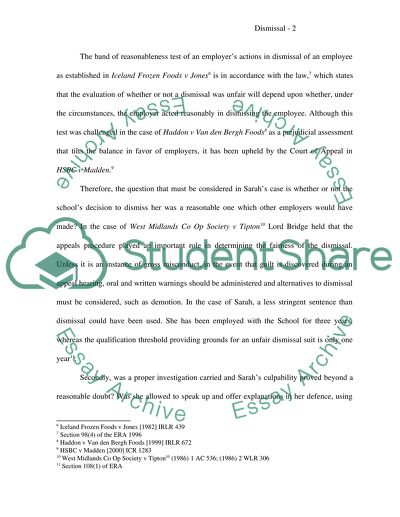Cite this document
(A Claim of Unfair Dismissal Case Study Example | Topics and Well Written Essays - 2000 words, n.d.)
A Claim of Unfair Dismissal Case Study Example | Topics and Well Written Essays - 2000 words. Retrieved from https://studentshare.org/law/1536486-employment-law-a-problem-question-in-which-one-advises-sarah-vera-and-mike-on-their-legal-rights-and-any-available-remedies
A Claim of Unfair Dismissal Case Study Example | Topics and Well Written Essays - 2000 words. Retrieved from https://studentshare.org/law/1536486-employment-law-a-problem-question-in-which-one-advises-sarah-vera-and-mike-on-their-legal-rights-and-any-available-remedies
(A Claim of Unfair Dismissal Case Study Example | Topics and Well Written Essays - 2000 Words)
A Claim of Unfair Dismissal Case Study Example | Topics and Well Written Essays - 2000 Words. https://studentshare.org/law/1536486-employment-law-a-problem-question-in-which-one-advises-sarah-vera-and-mike-on-their-legal-rights-and-any-available-remedies.
A Claim of Unfair Dismissal Case Study Example | Topics and Well Written Essays - 2000 Words. https://studentshare.org/law/1536486-employment-law-a-problem-question-in-which-one-advises-sarah-vera-and-mike-on-their-legal-rights-and-any-available-remedies.
“A Claim of Unfair Dismissal Case Study Example | Topics and Well Written Essays - 2000 Words”. https://studentshare.org/law/1536486-employment-law-a-problem-question-in-which-one-advises-sarah-vera-and-mike-on-their-legal-rights-and-any-available-remedies.


